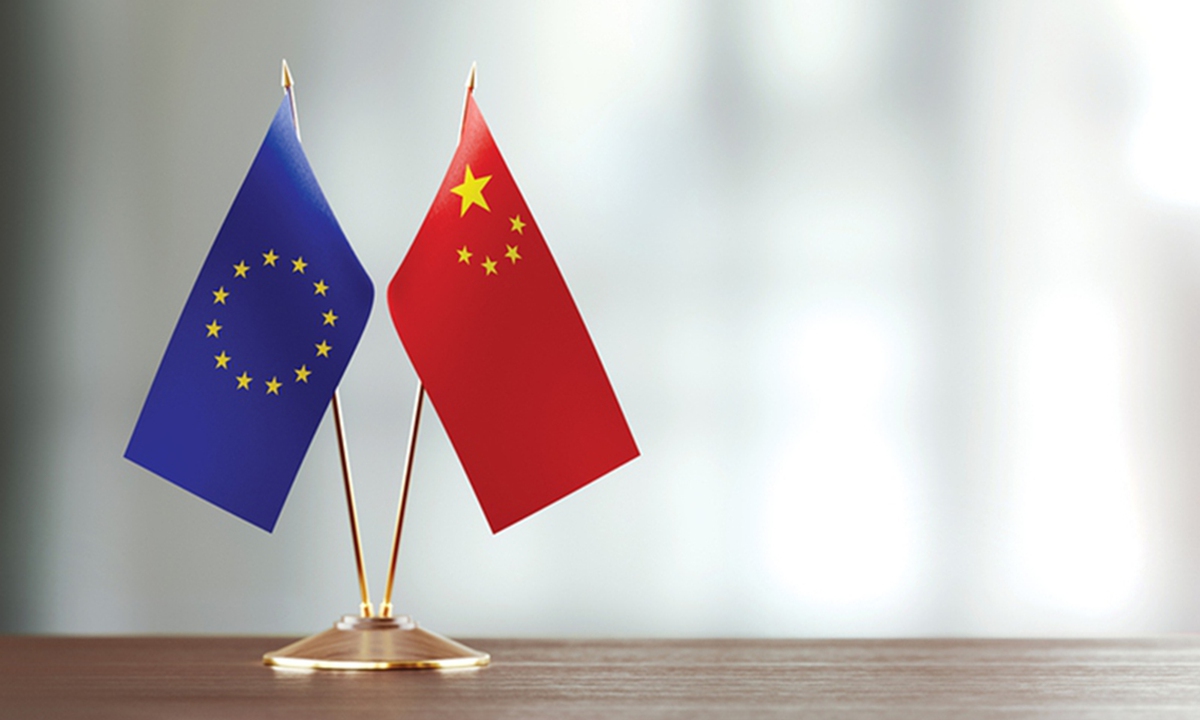China grants visa-free status to 6 European countries
Slew of measures show determination to boost exchanges

China EU Photo: VCG
As China will adopt a visa-free policy for Switzerland, Ireland, Hungary, Austria, Belgium and Luxembourg on a trial basis, observers said on Thursday that the latest move shows China's efforts to facilitate international travel and determination to boost exchanges and opening-up.
"We hope more countries will also offer Chinese citizens visa facilitation and work with us to build fast-track networks for cross-border travel and encourage speedy resumption of international passenger flights," Chinese Foreign Minister Wang Yi said,after having made the announcement of granting visa-free status to the six European countries at a press conference on Thursday on the sidelines of the second session of the 14th National People's Congress (NPC), China's national legislature.
This will make it more convenient for Chinese citizens to travel abroad, and make foreign friends feel at home in China, he said.
Wang, also a member of the Political Bureau of the Communist Party of China Central Committee, pledged more favorable measures, including more convenient payment methods.
China will continue to expand its visa-free "circle of friends," and reach arrangements for multi-year and multiple-entry visa options with more countries, Wang said.
The trial will last until November 30, and nationals of the six European countries will be able to stay in China for no more than 15 days for business, sightseeing, family visits or transfer without a visa, the Xinhua News Agency reported Thursday.
The announcement has led to a fourfold increase in flight ticket sales with the listed countries compared to the same period of the previous day on industry portal Tongcheng Travel by Thursday noon.
Among the six countries, flight capacity from Hungary to China has doubled the level of 2019, per data released in February, while flights from Belgium are operating at 90 percent of 2019 levels. This means that the growth in tourist numbers to China could be fastest in these two countries, according to data from Ctrip, a major online travel service platform.
Wang Huiyao, president of think tank the Center for China and Globalization, told the Global Times on Thursday that the visa exemptions showed China's determination and concrete efforts to keep opening up.
He proposed to continuing to expand the scope so that more foreign travelers can get a chance to enjoy China's large and diverse landscapes, the convenience brought by the 5G network and high-speed bullet trains, and understand China through first-hand experience rather than news reports or hearsay.
At the ongoing two sessions, deputies and political advisors also made proposals on how to enhance international exchanges and bring greater convenience to international travelers.
Song Yan, a deputy to the top legislature, proposed that cultural and tourist sites, especially famous scenic spots and core business districts, should implement both online booking and payments as well as offline ticket purchases with cash and cards, media reported.
Zheng Chunyang, a member of the Chinese People's Political Consultative Conference (CPPCC) National Committee, told the Global Times that his suggestion was to set up multilingual signs in cities and encourage more hospitals to provide international outpatient services to facilitate international exchanges.
Wang Yi said on Thursday that China will continue to expand its visa-free "circle of friends," and reach arrangements for multi-year and multiple-entry visa options with more countries.
A slew of supportive measures have also been released. The latest was on March 1 when Zhang Qingsong, deputy governor of the People's Bank of China, said the central bank will guide payment platforms such as Alipay and Tenpay to raise the single transaction limit for overseas travelers using mobile payments from $1,000 to $5,000, and the annual cumulative transaction cap will be raised from $10,000 to $50,000.

